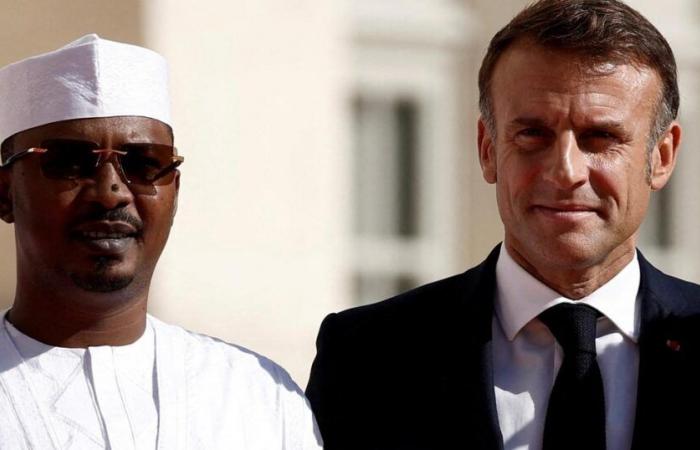The Chadian president assured Sunday that his country, the last to shelter French forces in the Sahel where Moscow is gaining ground, had ended military agreements with France without “replacement logic”.
“To remove any ambiguity, this decision to break does not in any way constitute a rejection of international cooperation, nor a questioning of our diplomatic relations with France”said General Mahamat Idriss Deby, a few days after the surprise announcement of the breakdown of these agreements with his traditional ally, which date back to the country's independence.
“Chad is in no way in a logic of replacing one power by another, even less in an approach of change of master”assured the Head of State in a statement to the press, emphasizing that “this decision was not taken lightly” and invoking the “sovereignty” of his country. “We have decided to put an end to this military cooperation to reorient our partnership with France on other areas which will have more positive impacts on the daily lives of our respective populations”he said.
Three bases and a thousand soldiers
The announcement of the suspension of military agreements, made in a press release from the Chadian Minister of Foreign Affairs posted on Facebook, a few hours after a visit by his French counterpart to the Sudanese border, surprised Paris which only declared the following evening “take note”.
France has already been forced to evacuate its troops from Mali, Burkina Faso and Niger between 2022 and 2023 after military juntas came to power and moved closer to Moscow. Senegalese President Bassirou Diomaye Faye also indicated Thursday in an interview with AFP that France would have to close its military bases in Senegal.
According to the Quai d'Orsay, Paris had already started “reflection and dialogue with its partners on the reconfiguration of its military systems in Africa”. France's last anchor point in the Sahel, Chad hosts a thousand French soldiers spread over three bases.
“The Government is instructed to contact the French side for the implementation of this decision”General Deby said on Sunday. The agreement provides that “either Party may denounce this Treaty by written notice”this denunciation “taking effect six months after receipt” by the other party, according to the text of which AFP had a copy.
Last May, three years of transition ended in N'Djamena with the election of Mahamat Idriss Déby Itno, brought to power by a military junta after the death of his father Idriss Déby killed by rebels at the front.
Threatened by rebel offensives, Déby senior was able to count on the support of the French army to repel them in 2008 and then in 2019.






